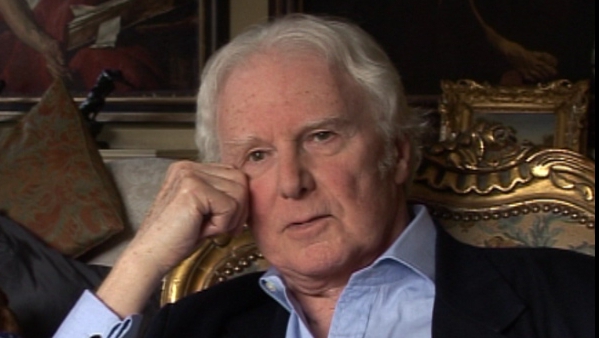NEXT STORY

Too late to return to academia
RELATED STORIES

NEXT STORY

Too late to return to academia
RELATED STORIES


|
Views | Duration | |
|---|---|---|---|
| 51. Titian's Assumption of the Virgin | 286 | 02:22 | |
| 52. Modern transport robs the traveller of the joy of discovery | 204 | 04:14 | |
| 53. Anthony Blunt and Johannes Wilde | 274 | 06:00 | |
| 54. How The Courtauld grew in prestige under Anthony Blunt | 251 | 04:58 | |
| 55. Notable alumni of The Courtauld | 225 | 01:13 | |
| 56. Working to fund my PhD | 202 | 04:42 | |
| 57. Too late to return to academia | 198 | 04:42 | |
| 58. Potential pitfalls in preparing an exhibition | 176 | 02:37 | |
| 59. Lost in translation: how not to compile a catalogue | 188 | 01:50 | |
| 60. Temperamental differences and a damaged Delacroix | 188 | 05:55 |


Well, what happened next was that I took finals, and immediately after… and it was immediately after my viva, Anthony followed me out of the room and said, 'You have to do research. You have to go for a PhD'. And I said, 'I’ve made no preparation for this. I haven’t applied for a grant, I haven’t any money, I don’t know how I can do it'. And so the next thing that I found myself doing was working at Windsor on the Royal Collection of old master drawings and architectural drawings. And that was an extraordinary experience, because there you are with masterpieces in boxes. Gosh. You know. Another very rapid learning experience. And I slogged on with that for a couple of months, and then the Royal Academy was having a Winter Exhibition that year, opening in January, of 17th century French painting, which had been very much my… one of my areas. And they needed someone who could translate the catalogue from French and add various bits and pieces to it, like biographies of painters and whatnot. And so I was given that job, and the man who was responsible for the exhibition was called Michel Laclotte, who worked at the Louvre, and eventually became a man of enormous distinction in French art politics. And Michel and I got on very well together, and we had three months of a very, sort of, intense relationship over the catalogue and the hanging, eventually, of the paintings and so on.
And that was a formidably useful experience. And then I went back to Windsor and did some more on drawings. And then I heard from the British Council. They rang up and said, there’s a Council of Europe exhibition to which we have to send various things. And would you like to do the catalogue for us? And so I did. And so there was yet more experience of an international exhibition, and all the problems that go with it. And then I went back to Windsor. And then there was… Anthony said, 'I’ve heard from Christie’s that they want an expert on old master drawings. How would it be for you to go and work there for a couple of years and save some money and then do the doctorate?' And that seemed rather a good idea.
And so I got the job, and then I really got stuck in it. It seemed somehow immoral to go there and do the work that they required from me, which eventually turned out to be much more than I expected, over a much wider range. But also, you develop loyalties, and loyalties very often get in the way. And there were moments when I should have resigned. There were moments when I could have said, 'I don’t want to go on with this'. But I didn’t. And in the end, I stuck there for ten years, and then there was a crunch and I really did have to leave.
One of the directors made it impossible to stay, and he was the director who was immediately in charge of everything I did. And so I left.
Born in England, Brian Sewell (1931-2015) was considered to be one of Britain’s most prominent and outspoken art critics. He was educated at the Courtauld Institute of Art and subsequently became an art critic for the London Evening Standard; he received numerous awards for his work in journalism. Sewell also presented several television documentaries, including an arts travelogue called The Naked Pilgrim in 2003. He talked candidly about the prejudice he endured because of his sexuality.
Title: Working to fund my PhD
Listeners: Christopher Sykes
Christopher Sykes is an independent documentary producer who has made a number of films about science and scientists for BBC TV, Channel Four, and PBS.
Tags: Royal Collection, Royal Collection of Old Masters, Windsor, Louvre, Christie's, British Council, Royal Academy Winter Exhibition, Council of Europe Exhibition, Anthony Frederick Blunt, Michel Laclotte
Duration: 4 minutes, 42 seconds
Date story recorded: April 2013
Date story went live: 04 July 2013